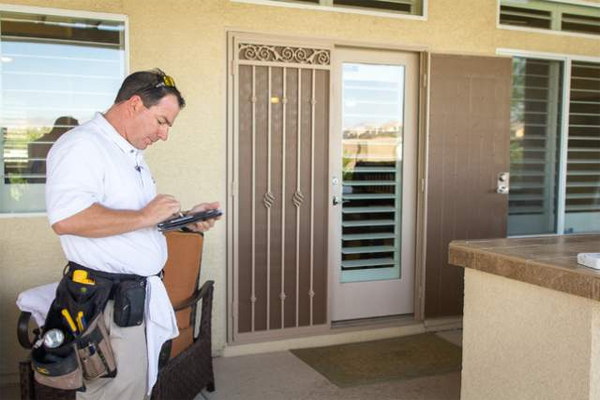A Boston North Shore home inspection may not necessarily be required, but it’s usually a good idea and a popular recommendation from industry insiders and real estate agents. However, hiring the right inspection company or home inspector is very important.
Because home inspection horror stories can and do happen, some prospective buyers seek the expertise of two home inspectors — the real estate equivalent of the proverbial “second opinion.” In this case, each inspector can act to double-check each other.
Hiring a Qualified Boston North Shore Home Inspection Company
Beware of these tell-tale signs (red flags) that you’ve hired the wrong home inspector.
If your home inspector insists on working alone, it could be a sign that he’s not doing a thorough job and isn’t fully communicating potential issues or problems to you. It’s best to at least be present while he conducts the inspection. Many times even if he doesn’t rate a specific area of your home as needing future maintenance or repair, he may, at a minimum, comment on shoddy workmanship or poor-quality repairs that you may otherwise not know about.
The inspector isn’t properly licensed. If you’re having a Boston North Shore home inspection performed, you’ll want to make sure your inspector is licensed in the state where the home is located. This may be especially prevalent if you live close to a neighboring state. Chance are the inspector will be licensed in both states… but don’t automatically assume that to be the case. Most importantly, if your home inspector isn’t licensed, the inspection carries no legitimacy with respect to recommended repairs used as negotiation tools with the seller.
The inspector’s communication regarding building codes is unclear or confusing. Let’s be honest, unless you’re familiar with building codes and regulations, you’re relying solely on the inspector to explain and notate them as they relate to your Boston North Shore home inspection. A good inspector will indicate various items or areas of the home that may need future attention and include a footnote as an explanation of what the code requires to “back up” his findings. Because building codes are always changing and evolving. It’s important for an inspector to explain what he means if, for example, he indicates on his report that many of the home components don’t, meet the building codes when in fact the only homes that would do so are ones built very recently.
For more articles pertaining to a Boston North Shore home inspection, see the Boston North Shore Home Inspection section of our site below Boston North Shore Real Estate Categories in the column to your right.
Remember, we also post tips daily on Twitter and we’re also on Facebook. We’d love for you to check us out there as well.

